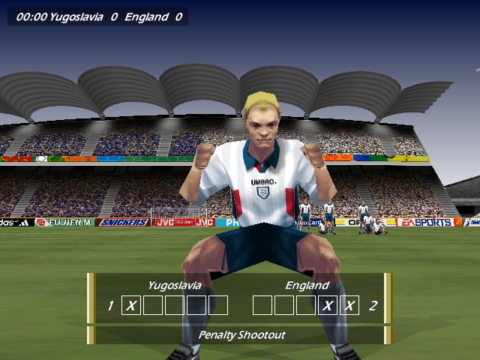
World Cup 98
Written by: Rik
Date posted: December 22, 2022
- Genre: Sport
- Developed by: Electronic Arts
- Published by: Electronic Arts
- Year released: 1998
- Our score: 5
The history of official World Cup games is essentially, bar some underwhelming and low-key early efforts, the history of FIFA. EA have had a monopoly on the license since this game was released in 1998, which means that whenever FIFA was good, the World Cup game was good; when FIFA was bad, the World Cup game was bad. (So much for a quick blog post looking back at official tournament tie-ins, then, especially as the last standalone efforts, based on the 2010 and 2014 tournaments, weren’t even released on PC).
Their debut is still kind of uniquely interesting, though: for PC gamers, at least, it represented a coming together of the official licence with the first genuinely good FIFA game, culminating in a product that represented more than a cash-in on the latest summer tournament, because it was widely regarded as the best football game out there at the time. That might seem like an odd claim, given that the previous FIFA was subtitled ‘Road to the World Cup’ and appears visually very similar to its official tournament semi-sequel, but for all its merits, FIFA 98 was generally considered a bit on the slow side and inferior to the faster and smoother Actua Soccer 2. (Although, as with the previous Actua vs. FIFA 96 debate, I’d personally have to go against the grain on that one).
The France ’98 tournament was also the first World Cup I remember experiencing with any real clarity as a genuine football fan. I turned 9 during Italia ’90, and remember bits and pieces, but due to general incompetence on the part of the England team and their failure to qualify for USA ’94, I had to wait until 1998 to see them compete on the global stage again. I followed the tournament keenly, as the optimism of Euro ’96 flickered and then gently died through the familiar mechanism of a lost penalty shoot-out against historic foes, with the moment of defeat forever immortalised through the mildly comical ITV commentary in which Brian Moore makes the ill-fated decision to ask Newcastle manager and expert summariser Kevin Keegan whether he thinks his player David Batty will score a decisive spot-kick just as Batty runs up to take it, forcing Keegan into backing his man, only to be immediately proved wrong.
(It wasn’t a great tournament for England, in all honesty, even if it subsequently seems to have been misremembered as yet another great footballing injustice visited upon the national team, whose manager Glenn Hoddle was in fact a visionary tactical genius rather than the man who omitted Paul Gascoigne from the squad, and David Beckham from the team, before leading the side to group victories over Tunisia and Columbia and exiting the tournament at the first knockout stage, the trophy itself remaining comfortably out of reach).
Still, I retained fond memories of the time, and the game, boldly nominating it as my footballing choice for our imaginary Windows 95 mini-console, despite having not played it for many years due to lingering compatibility issues. Which potentially gave it additional nostalgia points and a certain mystique that could not be easily dispelled by a quick replay, despite my having been underwhelmed by subsequent EA releases that almost certainly shared the same DNA. They’d gone in the wrong direction, you see, and focused on the wrong things. This was the tale I told myself, and to you, not so long ago. But, thanks to installation workarounds, patches and GLIDE wrappers, such thoughts can now be put under some more detailed scrutiny.
More modern iterations of licensed tournament titles have also incorporated the qualification campaigns, too, even allowing you to guide teams that never made it into the finals themselves. This was perhaps in belated recognition of the fact that a World Cup campaign is, even in the best case scenario, seven matches long, and possibly done and dusted in less time than a single real-life match. Still, it did at one point seem fair enough to just focus on the tournament, although where EA arguably made a rod for their own back was in attempting to make a virtue of the qualification campaign in FIFA 98: even if this was the first game to feature one, and alongside all the club teams and tournaments, too, the mention of the phrase ‘World Cup’ without actually featuring the World Cup seemed to draw considerable negative attention.
World Cup 98 is just about France ’98, then, with the option of some friendly matches for practice. As bonus content, there’s also the opportunity to play in classic World Cup finals of the past, kind of a Viva Football-lite (if Viva Football had actually been released on time and not after this game), complete with commentary from Kenneth ‘They Think It’s All Over’ Wolstenholme – but you do have to win the 1998 tournament first.
On the pitch, where FIFA 98 introduced a more extensive range of controls, including individual skill moves, that moved the action beyond your standard 1-4 button control scheme, World Cup 98 adds a bit of extra speed and smoothness, and some more detailed tactical options, including the ability to instruct teammates to make off the ball runs, and dynamically switch between different formations and tactics with the press of a button.
Ironically, the increased speed (which is adjustable) makes it a bit harder to manage all the necessary shortcuts while playing the game. Perhaps an 90s-era MS Sidewinder pad and less ageing hands/reflexes would have made it all a bit easier, but – in particular – sending players on a run down the wing, or through the middle, while retaining possession seemed a lot trickier than I remembered. Perhaps, back in the day, I played on the cowardly Amateur difficulty setting (the lowest of the three available), which allows you plenty of time on the ball and full opportunity to muck around with all the different options. Turn it up one notch to Professional and things get quite bogged down in midfield, with possession changing hands (or should that be feet?) more frequently, and tasty-looking sliding tackles flying around everywhere. It’s more similar to the frantic melee of FIFA 2000 than I might previously have dared to admit.
It is different though. Subsequent FIFA titles placed more emphasis on speed and made individual skill moves easier, which meant that tactics were barely needed. You can run with the ball here and beat a man, but you won’t be dancing pirouettes around several players on a regular basis. More important here is use of the in-game management system to switch between formations and strategies on the fly, thereby making sure you have more players in attack and defence at the appropriate moment. If you can’t master use of the dynamic off-the-ball runs or, heaven forbid, the feature where you switch control to a player without the ball and get the AI to pass to you, it’s not so much of a big deal – players do find space without your direct instruction.
The focus on managing the tactics for each game quite tightly makes sense in the context of tournament football, where eking out individual results is the primary goal, rather than finding a way of playing that sees you through a 40-match season. And so, there’s something satisfyingly World Cup-y about it all, with narrow wins and/or useful draws in group matches earning plenty of satisfaction, before giving way to genuine tension in the knockout rounds. Evidence of good passing moves, individual skill, and heroic defending can be found on display, and there’s a sense of a game series slowly on its way to achieving an approximation of the real thing, outside of the ping-pong action of earlier 90s titles, with an extra layer of depth that people like me wanted back then.
The presentation is really good, for the time, with EA’s attention to detail and deep pockets allowing for realistic kits and player appearances, even if only the most distinctive players on display, the Zidanes and Valderramas of this world, genuinely stand out (the England team, Shearer’s distinctive receding hairline apart, all seem to wear David Batty’s gruff expression). And there’s Tubthumping by Chumbawumba, too, on almost every menu, the charms of which seem rather more apparent to me these days than they did when it was on heavy rotation on the radio and TV. Back in the studio, there’s Lineker and Lynam updating you on progress, with Motson in the commentary box, which is all very authentic, although Chris Waddle’s appearance as summariser seems slightly incongruous and – to be frank – a bit annoying. Commentary scripts were a bit simpler back then, and with Motty it’s always more about the vibe and delivery than what he actually says, although repeated utterances about eating Cornish pasties and use of the phrase ‘liquid football’ won’t pass unnoticed. It was all rather good, this, back then.
Whether it still adds up to an enjoyable experience in the present day, however, is a slightly different matter. There are subtleties here, but accessing them while also wrestling with passing and shooting mechanisms that are rather imprecise by modern standards can be a struggle. Particularly so on a difficulty level that might actually challenge, where opponents are pretty handy with their tricks and skill moves in general, and the jump in particular (reminiscent of Mexico forward Cuauhtemoc Blanco’s signature move against South Korea in the tournament itself). Rather than passing around you, it’s often a case of your opponent’s best players dribbling past quite a lot of your defenders, and they seem to have a habit of doing so in the dying minutes of crucial games and scoring a late goal to put an end to your chances. Which is a killer if you go full ‘method’ and insist on completing the tournament without reloading a save after a defeat.
Still, I’m going to stick by my original assertion that World Cup 98 was the peak of 90s FIFA and did something more interesting than subsequent titles, including FIFA 2000, which admittedly delivers a smoother and more end-to-end experience but compromises depth and complexity in the process. The poor critical fortunes of FIFA in the early-mid 00s, which may be a tale for another day or possibly best ignored altogether, would seem to back up my feeling that EA did end up taking the series in the wrong direction for a while.
As for this game, in the cold unforgiving light of a harsh World Cup 2022 winter (please, for all kinds of reasons: never again), it struggles a little. Fans from the old days wondering if there’s anything still there will find something, but possibly not as much as they might want. The past is, sometimes, as good as you remembered. But sometimes it isn’t.

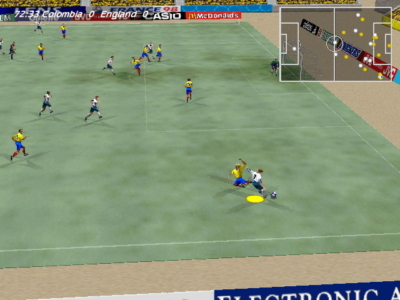
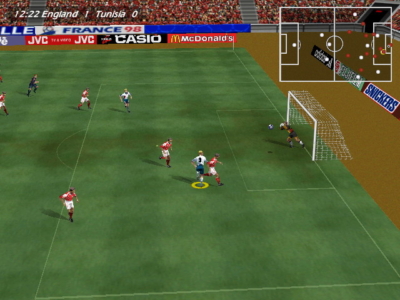
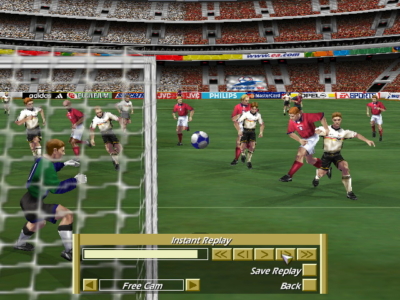
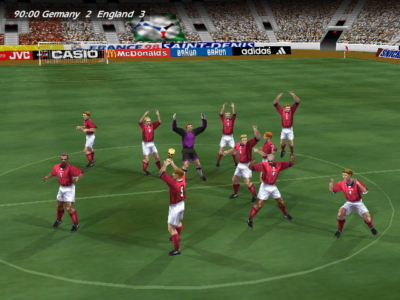

 Posts
Posts